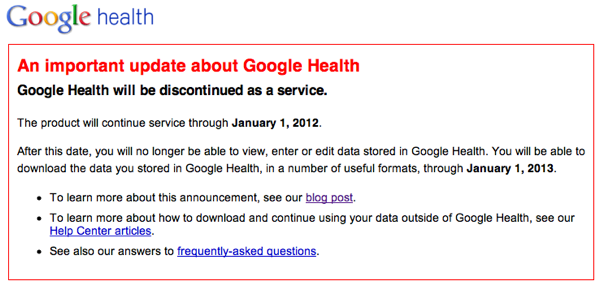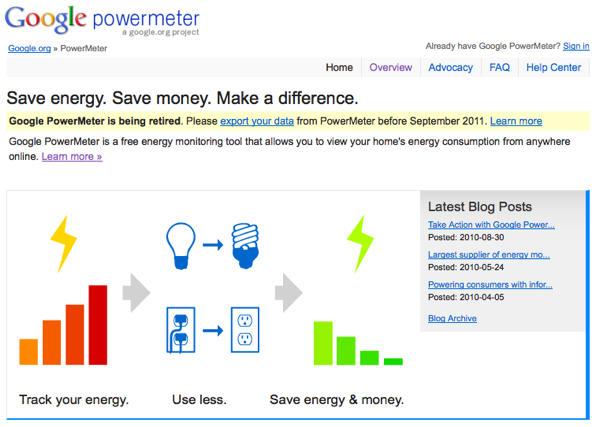Citing lack of “broad impact,” Google has announced they will be retiring Google Health and PowerMeter. “They didn’t scale as we had hoped,” Google reported in their Official blog.

Google Health was launched in 2008 and was intended to be a place where you stored your medical history and the treatments and prescriptions you have received. There was a certain amount of pushback from privacy advocates when the service first launched its beta in Cleveland.
“Privacy advocates, who have raised ongoing concerns about Google’s data accumulation, are growing even more uneasy with sharing this kind of personal data. One concern, as David Lansky at the non-profit John and Mary R. Markle Foundation explains to Business Week is that middle-layer players, as Google is in this project, aren’t covered by the same federal privacy regulations that apply to hospitals and health care providers,” SiliconValley.com noted.
Despite some early “adoption among certain groups of users like tech-savvy patients and their caregivers…. we haven’t found a way to translate that limited usage into widespread adoption in the daily health routines of millions of people,” Google stated.
The servive will be discontinued January 1, 2012 and records can be retrieved until January 1, 2013. Information will be transferable in a number of formats and can even be imported in to Microsoft’s HealthVault which is still available.

Google’s PowerMeter started “as a Google.org project to raise awareness about the importance of giving people access to data surrounding their energy usage.”
But again the company did not see the “scaling” they were used to and are turning it off September 16, 2011. The service’s API worked with “a variety of energy monitoring devices” and since it was done with open source the “API library is available to everyone under the Apache 2.0 license,” the Google.org blog noted.
“By helping people make more informed decisions through greater access to more information, we believe Google Health and PowerMeter have been trailblazers in their respective categories. Ultimately though, we want to satisfy the most pressing needs for the greatest number of people. In the case of these two products, our inability to scale has led us to focus our priorities elsewhere,” Google explained.

